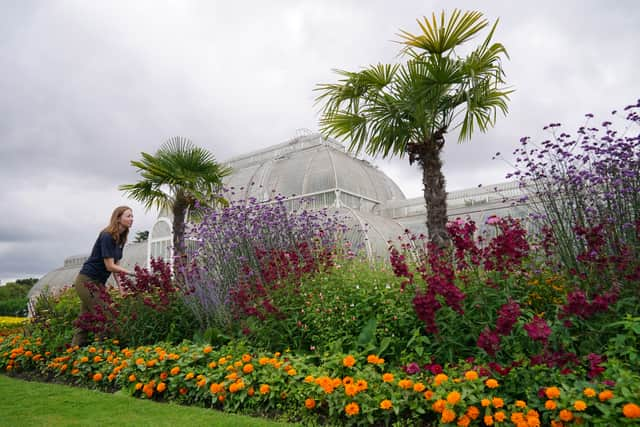How can we cool cities down during a heatwave? Study finds parks, gardens and wetlands could be the key
and live on Freeview channel 276
Botanical gardens are not just a tranquil place to enjoy beautiful flowers, research has found, but can cool city air by up to five degrees during heatwaves.
A new study - the most comprehensive review of its kind - led by the University of Surrey and published in science journal The Innovation this month, has analysed how different types of green spaces and waterways can cool down our cities and towns when temperatures creep up. This comes as the world has just experienced its warmest year on record - with many countries experiencing deadly heatwaves throughout 2023 which exacerbated wildfires, and took lives.
Advertisement
Hide AdAdvertisement
Hide AdProfessor Prashant Kumar, director of the university's Global Centre for Clean Air Research, said: "We have known for some time that green spaces and water can cool cities down. However, this study provides us the most comprehensive picture yet. What's more – we can explain why. From trees providing shade, to evaporating water cooling the air."


They found that while success depends heavily on local factors, there were some general patterns. Some kinds of green spaces and waterways cooled the air considerably, with botanical gardens taking the top spot - with an average cooling effect of 5C. Wetlands came in second with an average of 4.7C, with rain gardens following closely behind with 4.5C cooling.
Tre-lined streets could also expect to enjoy being an average of 3.7C cooler during a heatwave, while city farms (3.5C), parks (3.2C) and even playgrounds (2.9C) all helped too. Up to a point, the bigger the park – the bigger the cooling effect too.
But researchers said cities could also unlock greater benefits by connecting green spaces into 'green corridors'. Greening projects could also help to remove carbon emissions, and even help prevent flooding.
Advertisement
Hide AdAdvertisement
Hide AdProfessor Kumar said he hoped their study would help town planners around the world confront the challenges of global heating. "By implementing just some of the measures we describe, cities can become more resilient, and their citizens can be healthier and happier too," he said.
However in its analysis, the team also found areas of the globe which were vulnerable to extreme heat - but had not researched the best way to use green spaces to cool down. Co-author Maria de Fatima Andrade, an atmospheric science professor at the University of Sao Paulo, Brazil, added: “Our paper confirms just how many ways there are to keep cool. But it also reveals how much work is left to do.
"Institutions around the world need to invest in the right research – because what’s very clear from our study is that there is no one-size-fits-all solution. It depends on what works for your community," she continued.
Comment Guidelines
National World encourages reader discussion on our stories. User feedback, insights and back-and-forth exchanges add a rich layer of context to reporting. Please review our Community Guidelines before commenting.
